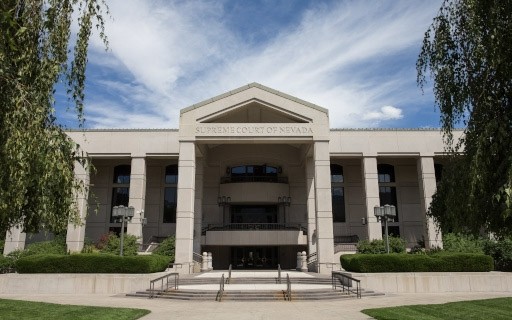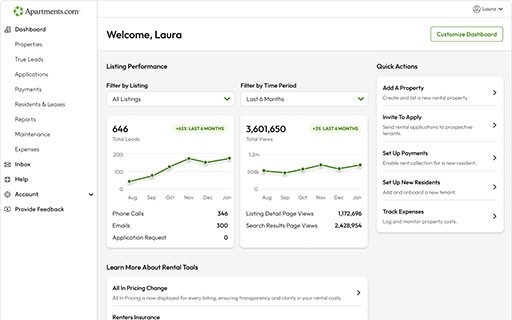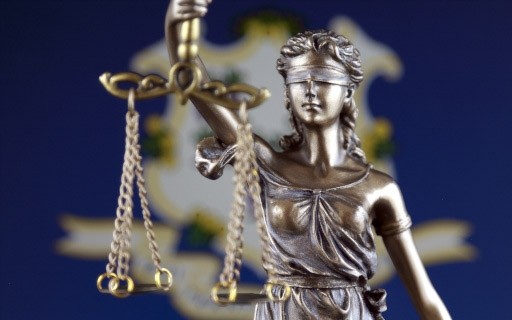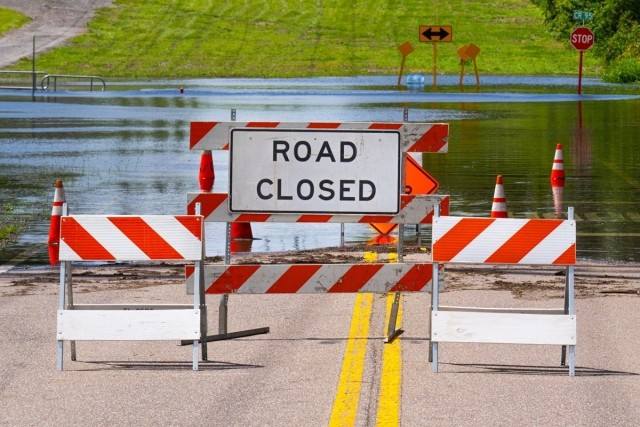
Renting out a home or room involves a lot of responsibility. Beyond maintaining the property and ensuring tenant satisfaction, you must also meet a range of legal obligations. These obligations are essential for fostering a smooth, compliant, and positive rental experience for both you and your tenants.
Failing to meet your obligations as a landlord can lead to serious consequences, ranging anywhere from costly fines to even legal action. To avoid these kinds of disputes, it’s important to stay informed and proactive about your legal responsibilities and how they affect a tenant’s living experience.
In this article, we’ll discuss the fundamentals of landlord responsibilities and tenant rights to ensure smooth and compliant operations for your rental business. Here’s a preview of what we’ll cover:
Landlord Responsibilities: What to Expect
So, what is expected of you as a landlord? Yes, you’ll be responsible for collecting rent, managing the property, and enforcing lease guidelines. But there’s more to it than that. Below, we’ll break down some key landlord responsibilities critical to a smooth, compliant, and stress-free tenancy.
Providing a safe and habitable property
First up for landlord responsibilities: safety and habitability. When housing tenants, you must ensure that your property is in safe, working order for the entirety of the lease. This means maintaining the property’s structure and major systems, conducting preventative repairs, and protecting the rental from potential health or safety hazards.
It’s safe to assume that if you’re listing a property for rent, you’re confident in its habitability. However, there may be state-specific components that redefine what it means to be “habitable.” So even though your property might check all the standard boxes, such as electricity access, working heating and air, no exposure to life-threatening conditions, etc., there may be additional aspects to consider depending on your location. Make sure to check your local and state laws before defining habitability standards in your lease agreement to ensure full compliance.
Respecting tenant privacy and property access rules
Another obligation you must meet as a landlord is respecting tenants’ privacy. In the rental industry, this is referred to as protecting a tenant’s right to quiet enjoyment. Though the property is legally yours, the second you exchange its occupancy for rent is when you forfeit exclusive access. This means you can’t show up unannounced, go through a tenant’s personal property, withhold or terminate essential utilities, or hinder the home’s livability to satisfy your personal needs/interests.
Property inspections are the exception to this rule, but even then, you must provide appropriate notice and a valid reason for entering the premises. For example, if you suspect a tenant is violating their lease by housing an unapproved pet or damaging the property, you can schedule a visit. However, you must do so with prior notice. Otherwise, your actions would be considered a violation of your tenant’s quiet enjoyment.
Managing repair and maintenance requests
Handling maintenance plays into the habitability guidelines we touched on earlier. This means attending to repair and maintenance requests from tenants and initiating preventative services as well. Say your tenant’s dishwasher starts leaking. In this case, they’d submit an emergency repair request, expecting a prompt response. Your next course of action would be to reply to the request, either by sending a contractor or on-site maintenance for repairs or replacement.
The key part of compliantly handling maintenance requests is to be prompt, transparent, and communicative. If you can’t immediately address the issue, make sure to communicate the timeline for repairs and keep your tenant updated on any changes or delays. This will not only build trust between you and your tenant but also ensure that they feel supported and valued.
Understanding Tenant Rights
Now let’s move on to exploring specific tenant rights. We just touched on the right to habitability and quiet enjoyment, which lay the foundation for landlord expectations and tenant needs. Beyond these, there are additional legal protections for tenants, which we’ll explore in detail below.
Fair Housing laws
The Fair Housing Act (FHA) is one of the most important landlord-tenant laws. Enacted as part of the Civil Rights Act of 1968, the FHA prevents housing discrimination and ensures equal opportunity for all renters, homebuyers, mortgage applicants, etc. This means that as a landlord, you cannot discriminate against existing or potential tenants based on the following:
- Race
- Color
- Religion
- Sex
- National origin
- Disability
- Familial status
FHA guidelines apply to every step of the rental process. For example, when screening tenants, you cannot deny an applicant based on any of the protected characteristics above. When a tenant has signed a lease agreement, you cannot impose different terms, conditions, or privileges based on the protected characteristics above. These instances are prime examples of FHA violations and can result in legal action being taken against the landlord or property owner.
Security deposit regulations
Next item of discussion is security deposits. When charging for a security deposit, you can’t ask tenants for exorbitant and unrealistic amounts. Rather, you must determine a fair and accurate amount by considering the cost of rent, included amenities, property type, market rate, and, of course, your local and state laws.
You must also consider if or how you will return the security deposit to your tenant. Generally, most states require that landlords return security deposits within about 30 days of the lease ending. If they fail to do so, assuming the tenant has not caused any damage, the landlord may be penalized. Therefore, it’s important to know your state’s specific security deposit mandates and clearly communicate them in your lease agreement to avoid potential disputes.
Landlord Compliance Tips
Having foundational knowledge of landlord-tenant laws is important, but it’s just the beginning. To execute your understanding and demonstrate compliance, you must take things a step further with the following property management practices:
Regularly review state and local laws
Legislation is always subject to change. So, make sure to regularly review your state and local rental laws to ensure you’re not missing a beat. Keep a pulse on any potential amendments to existing laws or new bills that may affect your property management practices and make necessary adjustments accordingly.
Maintain communication with tenants
Clear communication is your first line of defense against potential legal disputes. Establish a clear line of communication with your tenants and regularly check in to address any concerns they may have. This will not only help you maintain a good relationship with your tenants, but it will also ensure that both parties are on the same page when it comes to following lease agreements and complying with landlord-tenant laws.
Keep detailed records
Keeping thorough and detailed records is always a good business practice. However, it’s especially important when ensuring legal compliance. Through every step of the rental process, from screening tenants to handling maintenance requests, make sure to document all interactions, expenses, and relevant documents. This will not only help you stay organized, but it can also protect you in the event of a dispute or legal issue.
Ensure Landlord Compliance with Apartments.com
Staying on top of your legal obligations can be stressful, especially when you have so many other aspects of your rental business to worry about. From using the right language in your advertising to creating a fair lease agreement, ensuring compliance, clarity, and efficiency is no small task. But with the right tools, it becomes much more manageable.
That’s where Apartments.com comes in. Our comprehensive suite of Renter Tools helps ensure compliance throughout the rental process. With our resources, you can create and manage listings, screen applicants, collect rent payments, and more. Simplify your rental process while ensuring it remains fair, inclusive, and fully compliant every step of the way.
FAQs
What are the basic responsibilities of a tenant and a landlord?
Tenants are responsible for paying rent on time, keeping the property clean, and reporting maintenance issues. Landlords must provide a safe, habitable property, make necessary repairs, and respect tenant privacy.
What is the biggest responsibility of a tenant?
The biggest responsibility of a tenant is paying rent on time, as it ensures the landlord can maintain the property and fulfill their obligations.
How do you effectively manage a tenant?
Effective tenant management involves clear communication, addressing concerns promptly, and enforcing lease terms fairly while maintaining a professional relationship.











